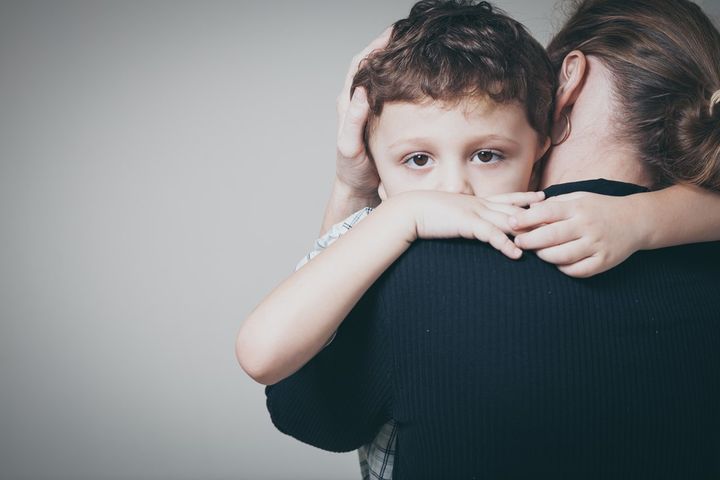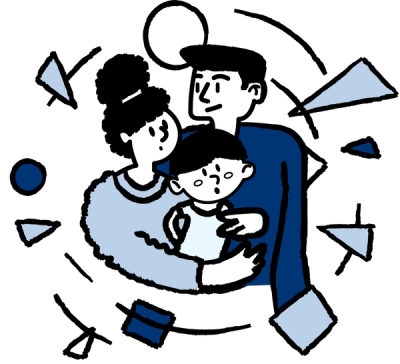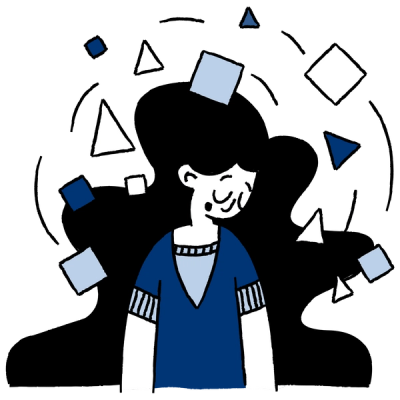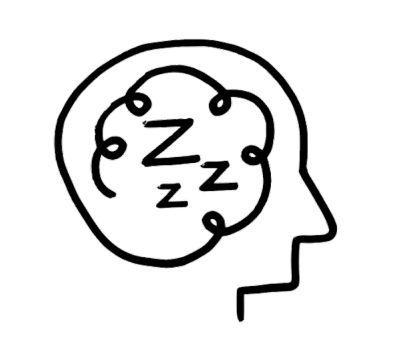Cameron's story
Cameron is a gifted musician who grew up in a beautiful Sydney suburb. From the outside, his childhood appeared idyllic - a good education, a loving family, and a vibrant neighbourhood. Yet beneath this picture-perfect exterior, Cameron lived through experiences no child should endure.
In this episode of Lifeline's Holding on to Hope, Cameron shares his story of surviving domestic and family violence, growing up with an alcoholic and violent father, and navigating the lasting effects of trauma. He opens up about moments that defined his childhood, like learning to listen for danger, protecting his mum, and enduring violence that left emotional and physical scars.
As a young adult, Cameron faced additional challenges when he began to explore his identity and sexuality, all while carrying the weight of unresolved trauma. After experiencing a deeply personal crisis, he found himself at a crossroads. It was the support of friends, counselling, and his passion for music that helped him take steps toward healing.
Cameron’s story is one of resilience and rediscovery. It's also one that shines a light on the impact of domestic violence, the power of connection, and the courage it takes to keep going. Cameron’s journey reminds us that even in our darkest moments, hope and healing are possible.
Listen here
Read transcript
Note: this transcript has been edited for clarity, grammar, and flow.
Warning message
This podcast series will share personal moments of connection and deeply felt experiences. If anything you hear has a triggering effect, please reach out to someone who can help keep you safe. Remember, you can contact Lifeline anytime at 13 11 14.
Beverley: Welcome to Lifeline's Holding on to Hope, a podcast in which people who have reached dark places in their lives share their stories. This is Cameron's story. He's a musician. It’s a story about a hidden terror no child should have to endure. It's also a story about how passion and people can transform an ugly start into something very beautiful.
Cameron: I grew up in Sydney, in a beachy kind of area, and I would say from the outside, I was very lucky in many ways. I mean, I grew up in a very beautiful neighbourhood and had access to a really good education, both for primary school and high school.
For the most part, I was a pretty well-behaved and motivated student. I also had a family that was very loving and supportive in many ways. But, like most families, we had our difficulties. In particular, my father was really violent and had a drinking problem.
My dad was a primary school teacher, and at his school, he was very charismatic. In many ways, he was probably the most popular teacher there.
But in the evenings, when he came home, he would pretty much drink every day. I often remember him picking me up from school and stopping by the bottle shop on the way home.
While I watched TV in the afternoons, he would drink continuously in our back room until my mother got home from work. Every Friday, he regularly spent time at a pub near his workplace until very late at night.
Between the ages of about eight and twelve, I became really attuned to listening for distress signals. These were often small, elevated sounds like raised voices or a slamming door—anything that signalled danger was about to happen.
Looking back as an adult, I can see that I was very anxious during this time. If I heard any kind of raised voice, I’d take myself to the hallway where I could hear what was happening more clearly.
I’d wait in this limbo until things either calmed down or escalated. Sometimes, I had to go to a neighbour’s house to call the police. Other times, my mum and I had to leave home on very short notice and stay in a hotel.
Christmases, birthdays, and other significant occasions were often the worst for violence, probably because drinking was more common.
One Christmas stands out. Tensions had been high for days. On Christmas Eve, my father, who was very drunk, smashed my mum’s head against our dining room table so hard that the table split in two.
I had been peering around the corner, watching everything unfold. I was so frightened, but I tried to be brave. I walked out in my pyjamas to see my mum lying on the floor and the broken table in front of me.
I pleaded with my dad, saying something like, “It’s Christmas Eve—please stop.” Instead of calming down, he lowered himself to my level, slurring his words, and asked if I knew who Santa Claus was.
My mum was crying in the background, saying, “No, don’t do this. This is wrong.” My dad introduced himself as Santa Claus, told me Santa wasn’t real, and produced some hidden presents to prove his point.
It was a crushing moment. Later that night, things escalated further, and my mum and I left, staying at a roadside motel on our way to her parents’ house. It was a very bleak time.
That year was incredibly difficult. I’d had a couple of relationship failures, finished my university studies, and was working long hours to support myself. My days were intense—I’d study from 9 to 5 at a college-style university and then work until 9 or 10 at night.
In the months leading up to the wedding, I found myself increasingly unsure about my future. I didn’t see a clear pathway out of my situation, even though, looking back, there were probably options I couldn’t recognise at the time.
On the last day of work for the year, I remember feeling unusually calm on the bus ride home. By that point, I’d been experiencing suicidal ideation for months and had thought about how I might end my life.
That night, after saying goodnight to everyone, I went into my bedroom, laid down, and attempted to take my own life. I woke up two days later in hospital. Apparently, my family had found me.
Lifeline:
There is always hope. Lifeline is here to help. Reach out to us on 13 11 14, text, or chat.
Cameron: I’m sure this is a very millennial thing to say, but I’d written on Facebook and Twitter about my intentions. I truly didn’t think I’d be coming back.
Because of this, the hospital was made aware of my social media posts, and I wasn’t allowed access to my phone or accounts until days later, after I’d returned home. When I finally saw the responses—messages, comments, and voicemails—they weren’t comforting.
It felt overwhelming. I hadn’t expected to wake up and deal with the aftermath of a public suicide attempt. What I thought would be a private matter with close friends and family had now reached colleagues, acquaintances, and even strangers connected to me through social media.
For years after, it became a topic that people would bring up in conversation, a constant reminder of what had happened.
Adolescence and early adulthood are defining times. Everyone knows this, but I think it becomes truly clear only when you look back. Events from those years shape how you see the world and how you react to it.
For me, the domestic violence, my father’s behaviour, and the challenges with my mum created a sense of unease and distrust that still lingers today. Even as an adult, I find it hard to feel safe in their company.
I think my parents made selfish choices. They wanted to stay together despite the harm it caused. Their issues filled my youth with anxiety and instability. My dad returned to our lives repeatedly, even after his arrest, and it often felt like my mum allowed it to keep the peace.
I was fortunate to have a counsellor who was kind and structured in her approach. After attempting suicide, there were structured appointments, and I had to live with someone who could monitor me.
My counselling sessions were an hour’s journey away by public transport. Just getting out of the house for that time was helpful. The sessions gave me a routine and a reason to think beyond the immediate sadness I was feeling.
We talked a lot about my music and writing. Whether it was a distraction or a genuine passion, it became a focus for me and gave me something to hold on to.
I’ve always been lucky to make friends easily, and they were a big part of my recovery. There’s this idea that extroverted people don’t experience depression, but that’s not true.
You only have to look at someone like Robin Williams to see that mental health challenges can affect anyone, regardless of how outgoing they seem.
My friends helped me with small acts of kindness—taking me to the park, watching movies with me, or walking to the beach. These simple gestures made a huge difference. They reminded me there was still life outside the bedroom I spent so much time in.
Beverley: Cameron started going to the gym, pushing himself to achieve fitness levels he’d never imagined possible. He also found comfort and accountability in returning to work.
Cameron: I’m so glad I went back to work. Just being treated as a normal person, given responsibility, and earning money again gave me back a sense of identity.
Around the same time, I’d sent some of my music to prominent Australian musicians. Shortly after leaving hospital, I received a response saying they were impressed and wanted to work with me on a development program, possibly including a tour.
Despite advice to take a break and focus on my mental health, I decided to pursue these opportunities. I think people were worried the pressure might lead me to relapse, but I knew it was what I needed.
These opportunities were life-changing. They gave me a reason to keep going and helped me rebuild my independence.
I’ve heard similar stories from others—people rediscovering hobbies or passions that once made them feel whole. For me, music has always been that thing. It’s been my constant, even through the hardest times.
It would be nice to say that after my experience, I never had negative or depressive thoughts again. But that’s not the case. I think if you experience early trauma, it stays with you for life.
That said, I’ve learned how to manage it. I don’t think I’ve ever felt as low as I did during the period of my suicide attempt. At the time, I spent so long ruminating on my feelings, and that’s something I try not to do anymore.
Now, I focus on keeping myself busy and filling my life with things that bring me a sense of purpose. I’m not athletic, but I make an effort to exercise for an hour every day. It keeps me feeling good inside and out, and it means I don’t rely on medication.
Being more open with my friends has also been important. If I’m feeling down, I’ll try to do something in that moment, whether it’s playing music, going for a run, or organising an activity, to address how I’m feeling.
When I’m really low, I try to think about the last time I was happy. It doesn’t have to be something big like a birthday; it could be a small moment—helping someone achieve something or an act of kindness I experienced.
Thinking this way helps me remember that kindness is everywhere, even in day-to-day life. It reminds me that happiness, even small moments of it, is always just around the corner.
Beverley: Thank you for listening to Holding on to Hope. Lifeline Australia is grateful to all our interviewees who share their stories in the hope of inspiring others.
We also acknowledge all of you who provide support to people in crisis and those on their journey to recovery.
If you found this podcast helpful or inspiring, please share it, rate it, write a review, or subscribe wherever you download your favourite podcasts.
If this story has affected you and you need support, you can contact Lifeline via 13 11 14, text, and chat.
If this story has inspired you to become a Lifeline volunteer or to donate, please visit lifeline.org.au.
For LGBTI-specific support, visit QLife or ACON at acon.org.au.
With thanks to Wahoo! Creative for interviews, editing, and production, and to the voices of lived experience, which are essential in the development of our work.




